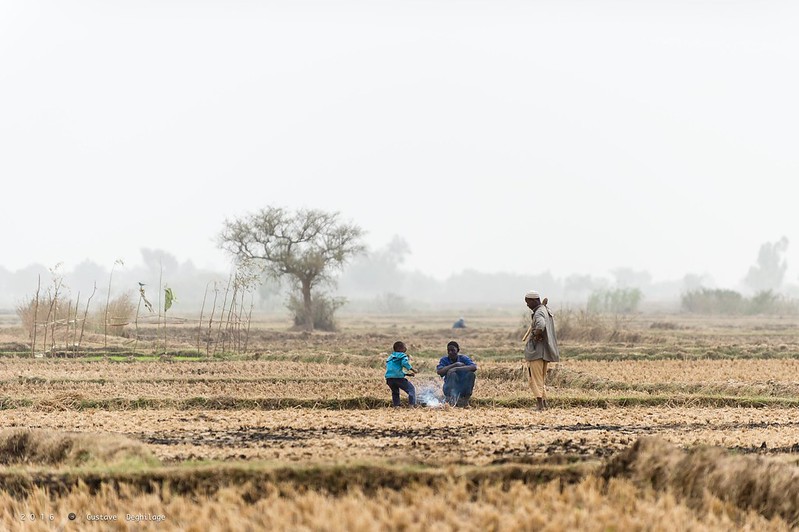Agriculture and food sectors key in African mitigation measures

Paddy field in Niger. Photo: Gustave Deghilage
Since agriculture, forestry and other land-use sectors generate nearly half of total greenhouse gas emissions in Africa, compared to globally 13-21%, mitigation measures must focus on the adoption of modern and climate-smart agricultural practices for smallholder farmers. Coping with climate variability and reducing GHG emissions require also finance, technology transfer, and capacity building, says NAI Senior Researcher Assem Abu Hatab, contributor to the new IPCC report.
He contributes to chapters related to climate change mitigation through shifting to healthy diets and reducing food waste.
Here are some of the recommendations:
- Realizing the full mitigation potential from AFOLU requires change at all stages from producer to consumer and waste management, which can be facilitated through integrated policy packages that address the needs and perspectives of multiple stakeholders to achieve outcomes that maximize synergies while limiting trade-offs.
- Integrated food policy packages based on a combination of market-based, administrative, informative, and behavioral policies are needed to realizing the full mitigation potential from AFOLU and increase acceptance across stakeholders and civil society.
- Many of the investments in environmentally friendly technologies in AFOLU sectors do make sound economic and financial sense. That is, the economic benefit from reducing emissions from AFOLU can exceed cost and decreasing emissions does not necessarily have to hurt the global economy
“However, potential varies across regions and may be influenced by technical, financial, and cultural barriers, and governance, accountability and institutional capacity”, Abu Hatab adds.
Read full report here: Climate Change 2022: Mitigation of Climate Change External link, opens in new window.
External link, opens in new window.
